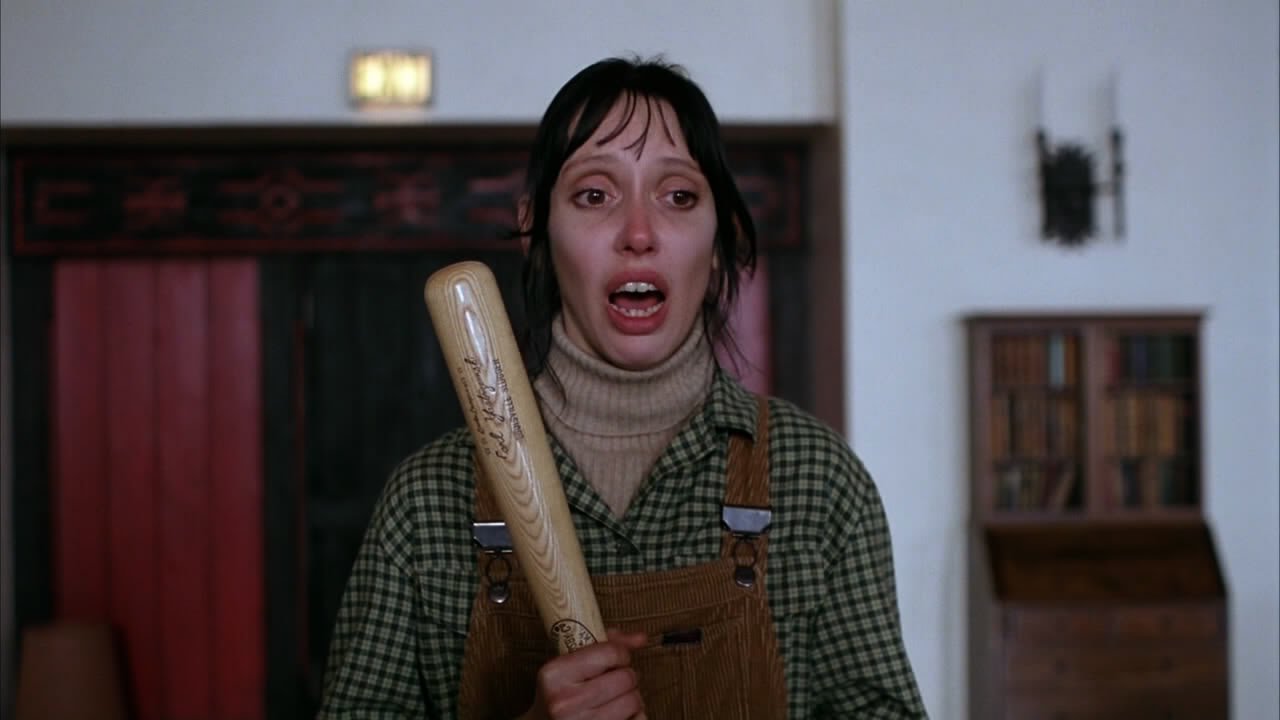
Fans across the world were saddened to learn that actress on July 11 – just four days after her 75th birthday.
Known for off-kilter roles like Wendy Torrance in (1980), Olive Oyl in Popeye (1980), and Millie Lammoreaux in 3 Women (1977), the actress cemented herself as a symbol of the bizarre and macabre throughout her career.
But behind the scenes things were often even more dramatic than the movies in which she starred. Tragically, the story of Duvall’s life is one of a deeply creative person who was all too often taken advantage of by a brutal industry.
In a 2024 interview with , Duvall drew a correlation between the issues she struggled with for years and the unfeeling nature of Hollywood: ‘I was a star; I had leading roles,’ she said. ‘People think it’s just ageing, but it’s not. It’s violence.’
How would you feel if people were really nice, and then, suddenly, on a dime they turn on you?’
Born to upper middle class parents in Texas in 1949, Duvall came of age in a difficult time and place to be a distinctive looking woman.
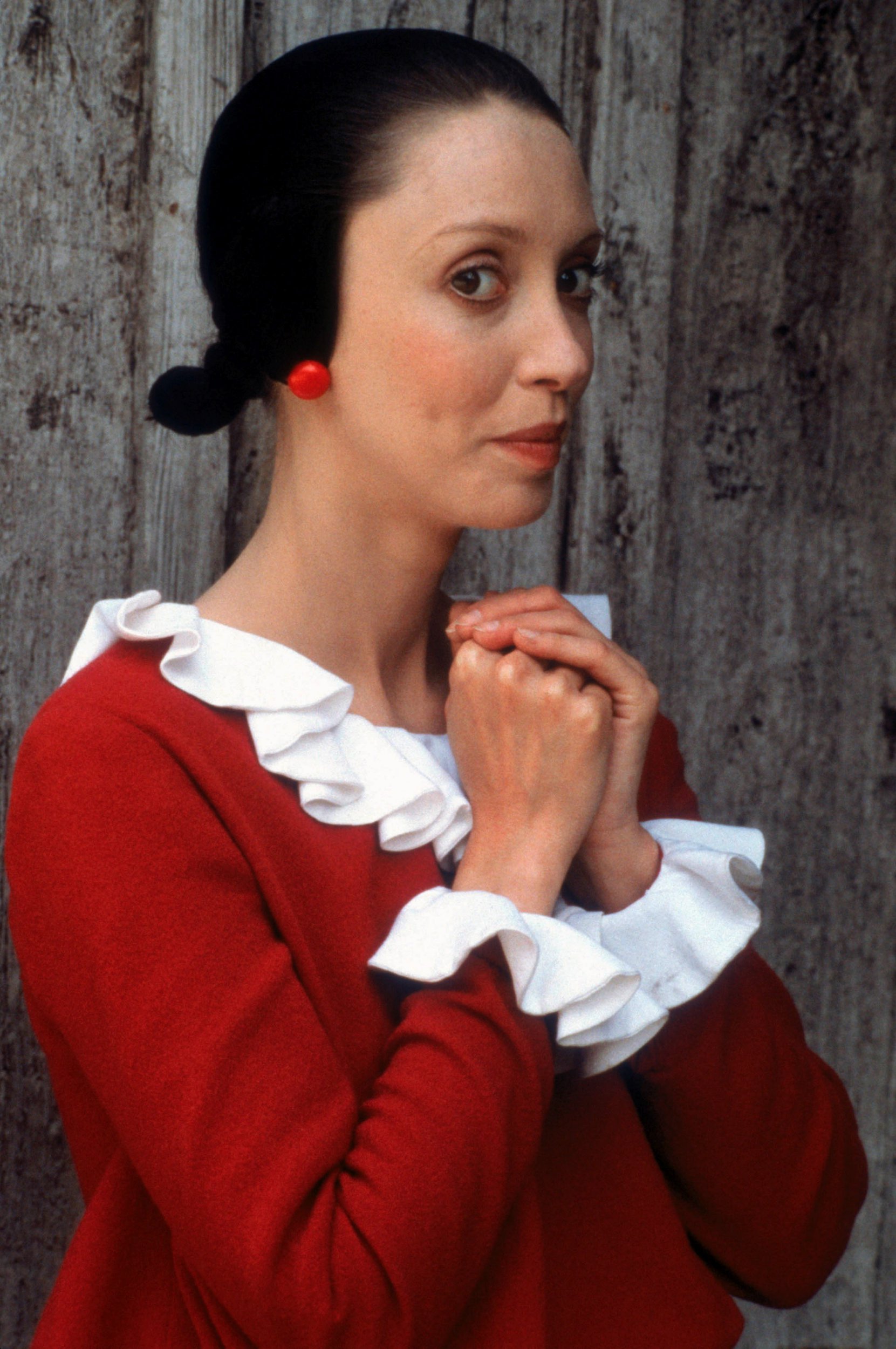
In one interview, she recalled how kids used to taunt her about her gangly body, chanting: ‘Nahhh, Olive Oyl! Olive Oyl!’ a part she eventually played in 1980’s Popeye.
She then reflected on what it meant to her to reclaim a character that had once been a source of pain for her, telling : ‘Children grab me around the legs in the grocery store and say, “You’re Olive Oyl!” That’s really, really good. It makes that movie one of the best things I’ve ever done.’
But not everything that happened to Duvall throughout her complex life could be spun as positively.
After first being discovered in 1970 by film director Robert Altman, the actress made a number of films with him and began to generate buzz, snagging a part in Annie Hall in 1977. During filming she met Paul Simon, who she dated for two years.
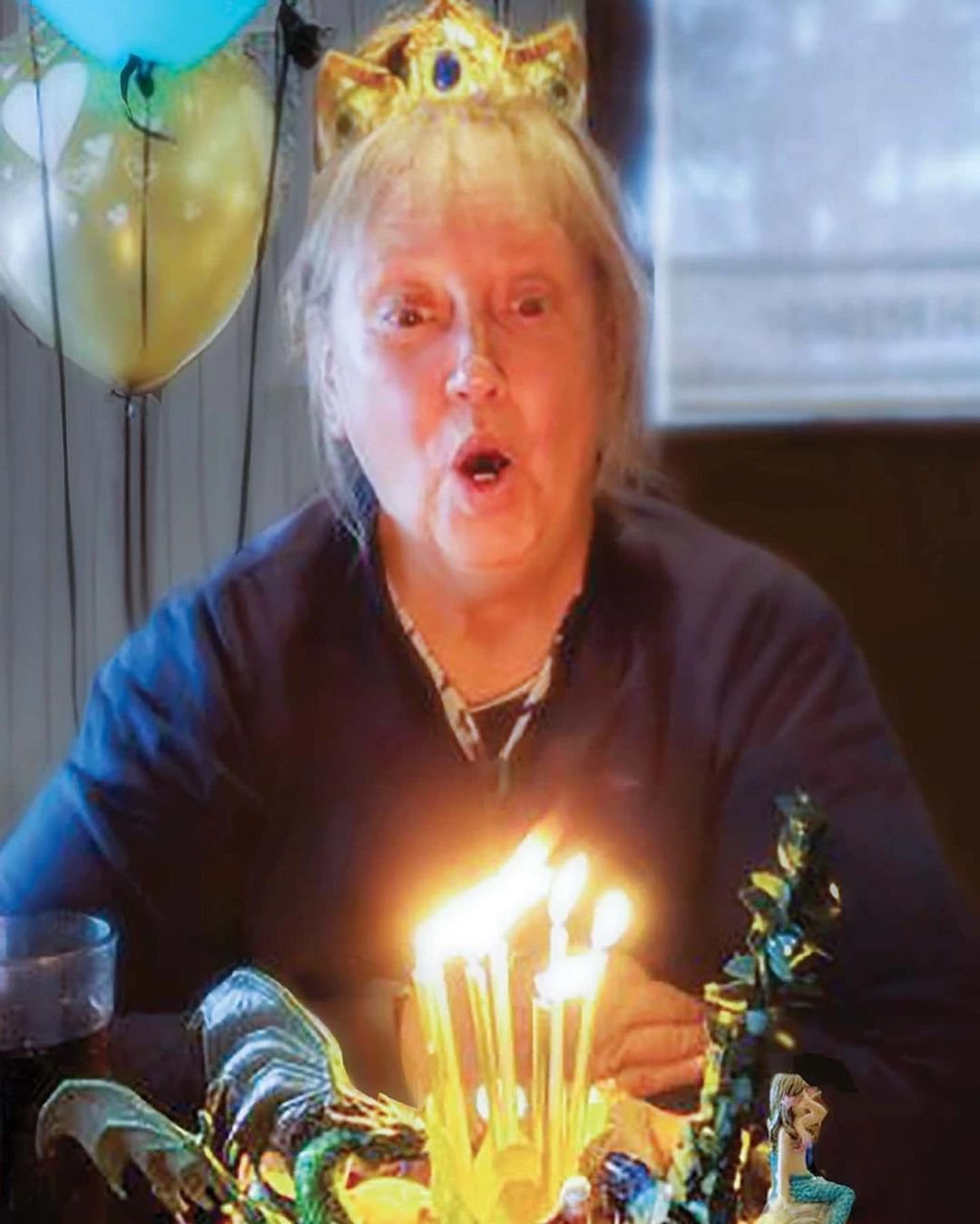
But in 1980, just as it seemed nothing would stop Duvall’s meteoric rise, cracks began to show. Simon left Duvall for Carrie Fisher – who Duvall had introduced him to.
He reportedly ended things as he dropped her off at the airport to film ’s The Shining.
Heartbroken and vulnerable, Duvall arrived on set only to find an environment that, by modern standards, was horrifically abusive – so much so that her hair literally began to fall out.
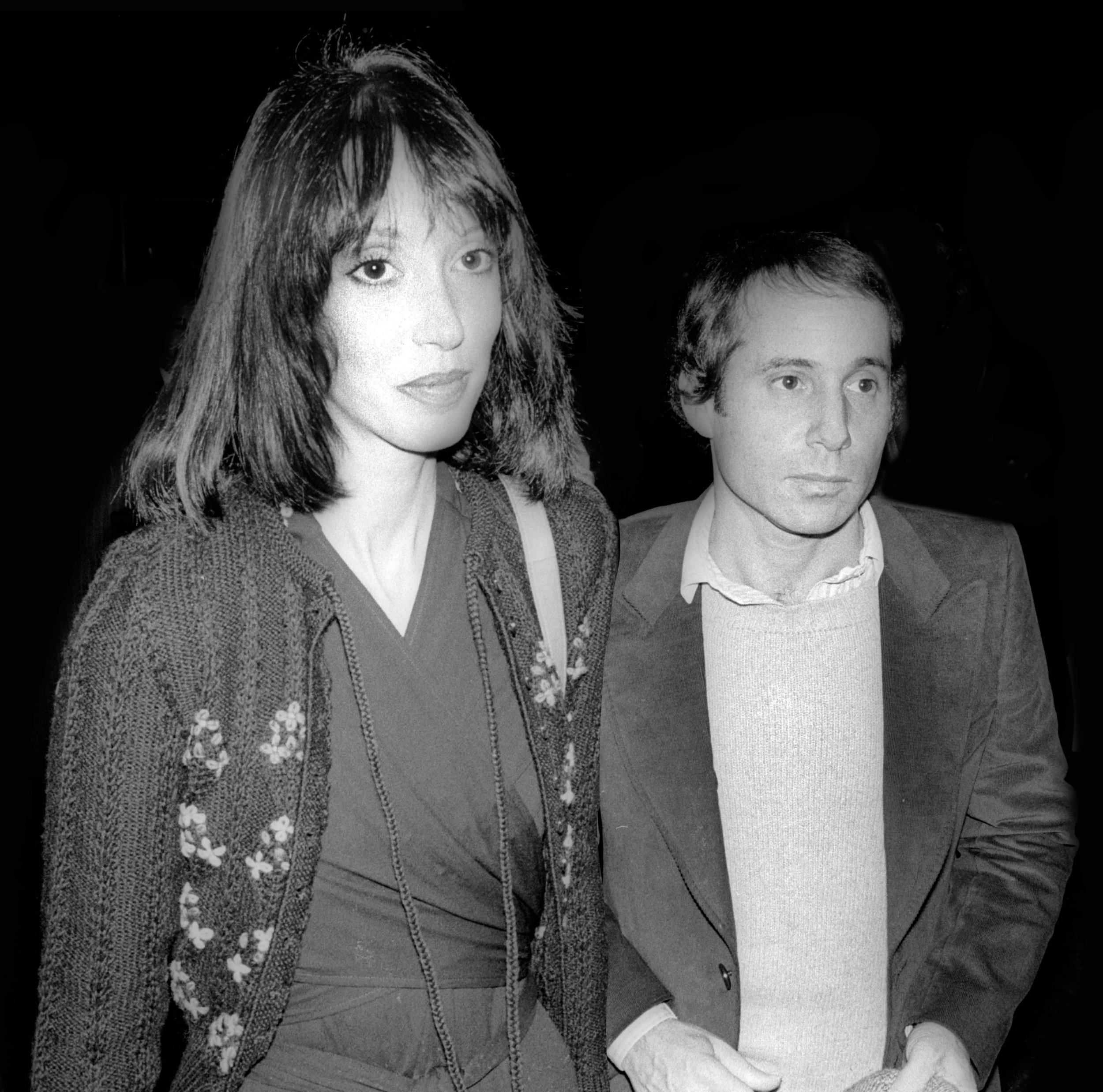
Kubrick treated Duvall abysmally, reportedly even encouraging other actors to ignore her in order to create the sense of isolation that her character was feeling in the movie.
‘Don’t sympathize with Shelley,’ he said to the crew in a documentary about the making of the film. He also made the decision to never compliment her or acknowledge her needs throughout filming, encouraging the rest of the cast and crew to do the same.
The shoot lasted well over a year, throughout which Duvall lived in a nearby isolated apartment.
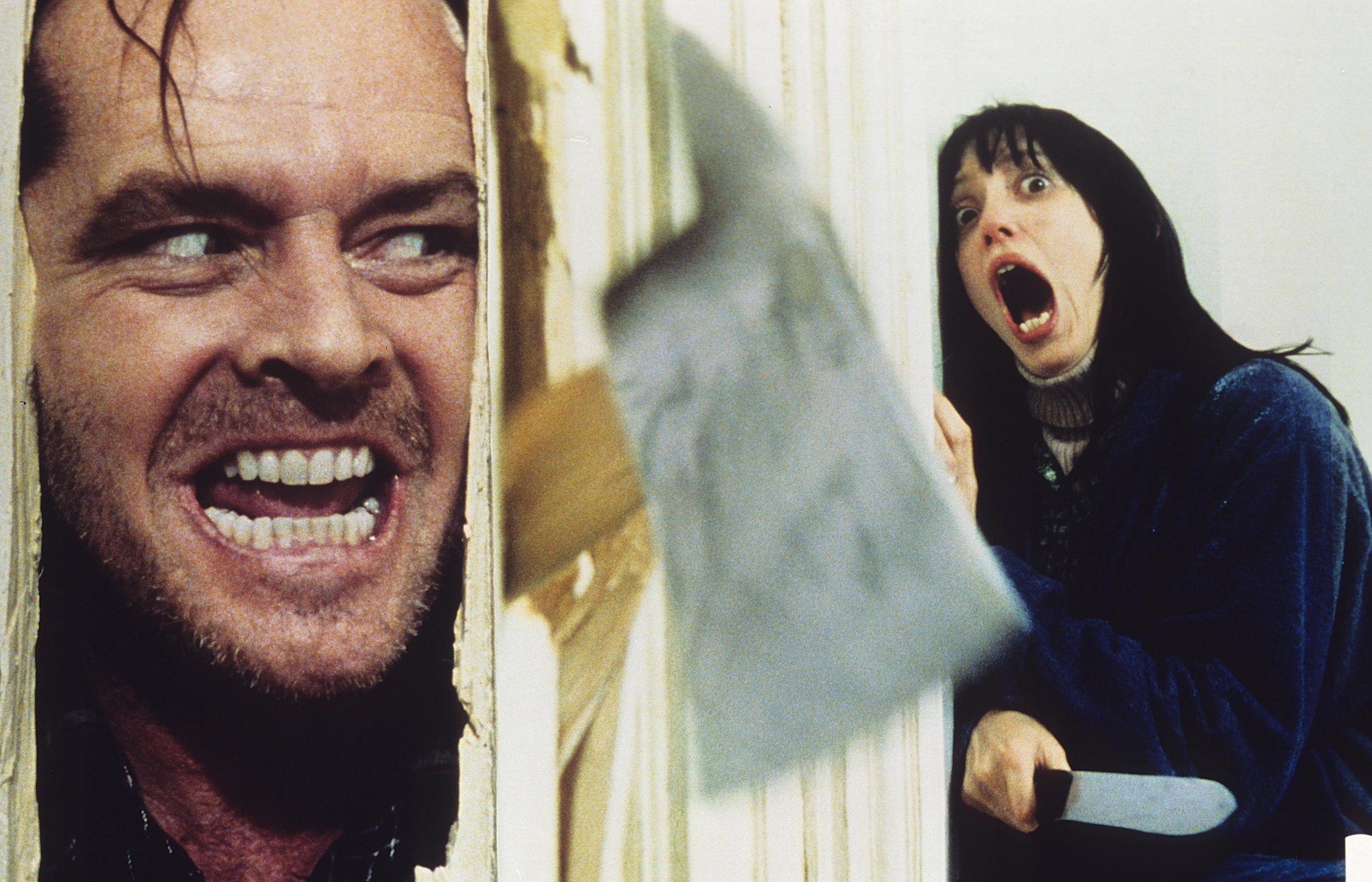
Infamously, Kubrick insisted on shooting the famous baseball bat scene – in which Duvall’s Wendy fends off ’s character with a baseball bat – 127 times.
The take used in the movie, in which Duvall appears exhausted, terrified, and has puffy red eyes and hands that have been rubbed raw, was not manufactured, but instead captured the real state of the actress by the time Kubrick allowed them to wrap.
The details of an even more famous moment, when Nicholson busts through the bathroom door with an ax, were supposedly kept from Duvall. By that point in filming her nerves were so frayed that her reaction of terror was genuine, as she had no prior knowledge that Nicholson was going to be wielding a weapon.
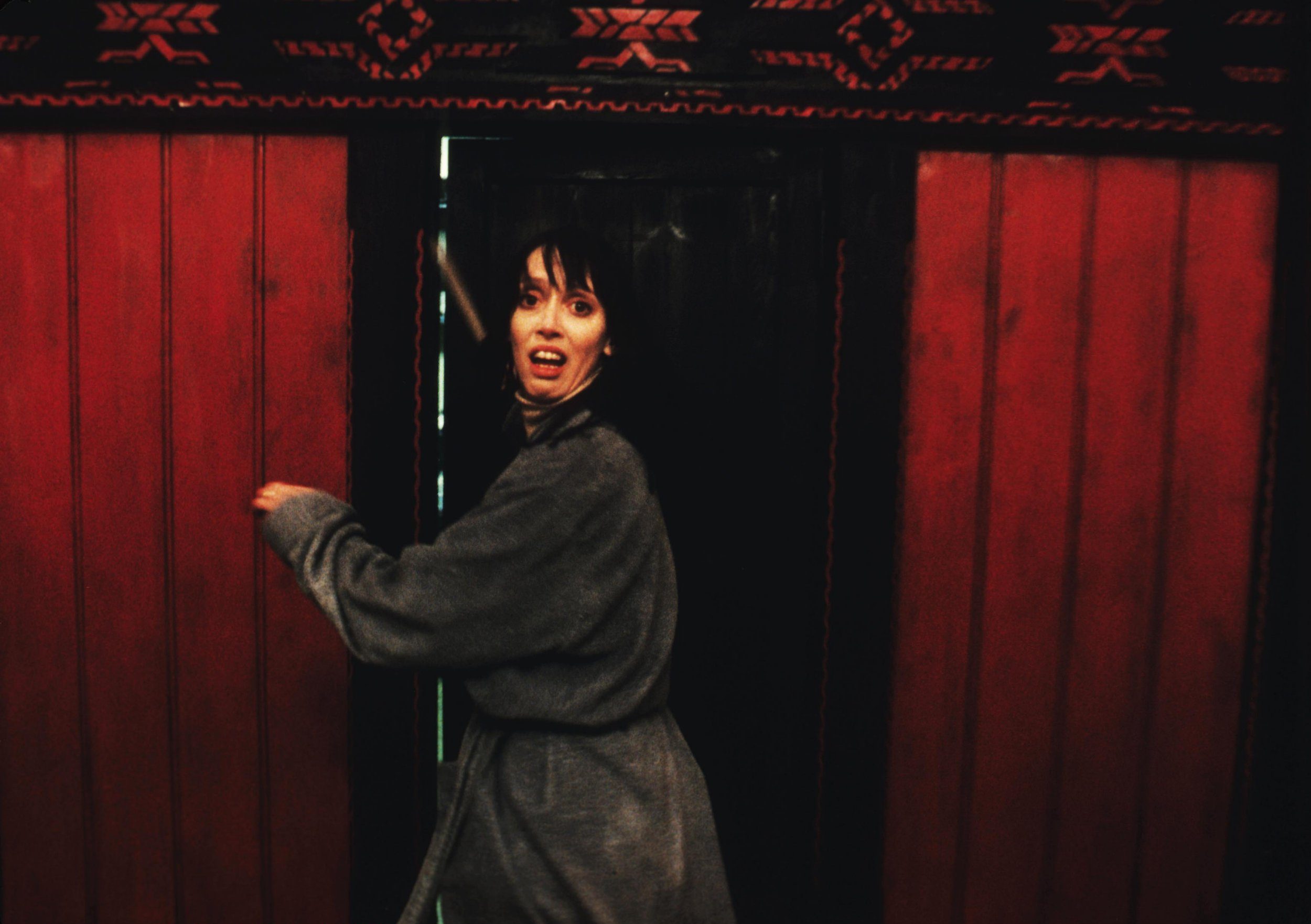
Duvall later said of her experience shooting the film in an interview with : ‘To wake up on a Monday morning, so early, and realize that you had to cry all day because it was scheduled — I would just start crying.’
Still, she often praised Kubrick, claiming that his heavy handed directing did elicit the best possible performance from her.
But she also made it clear that she would never go to such lengths to make a film again, telling : ‘Crying 12 hours a day for weeks on end. I will never give that much again. If you want to get into pain and call it art, go ahead, but not with me.’
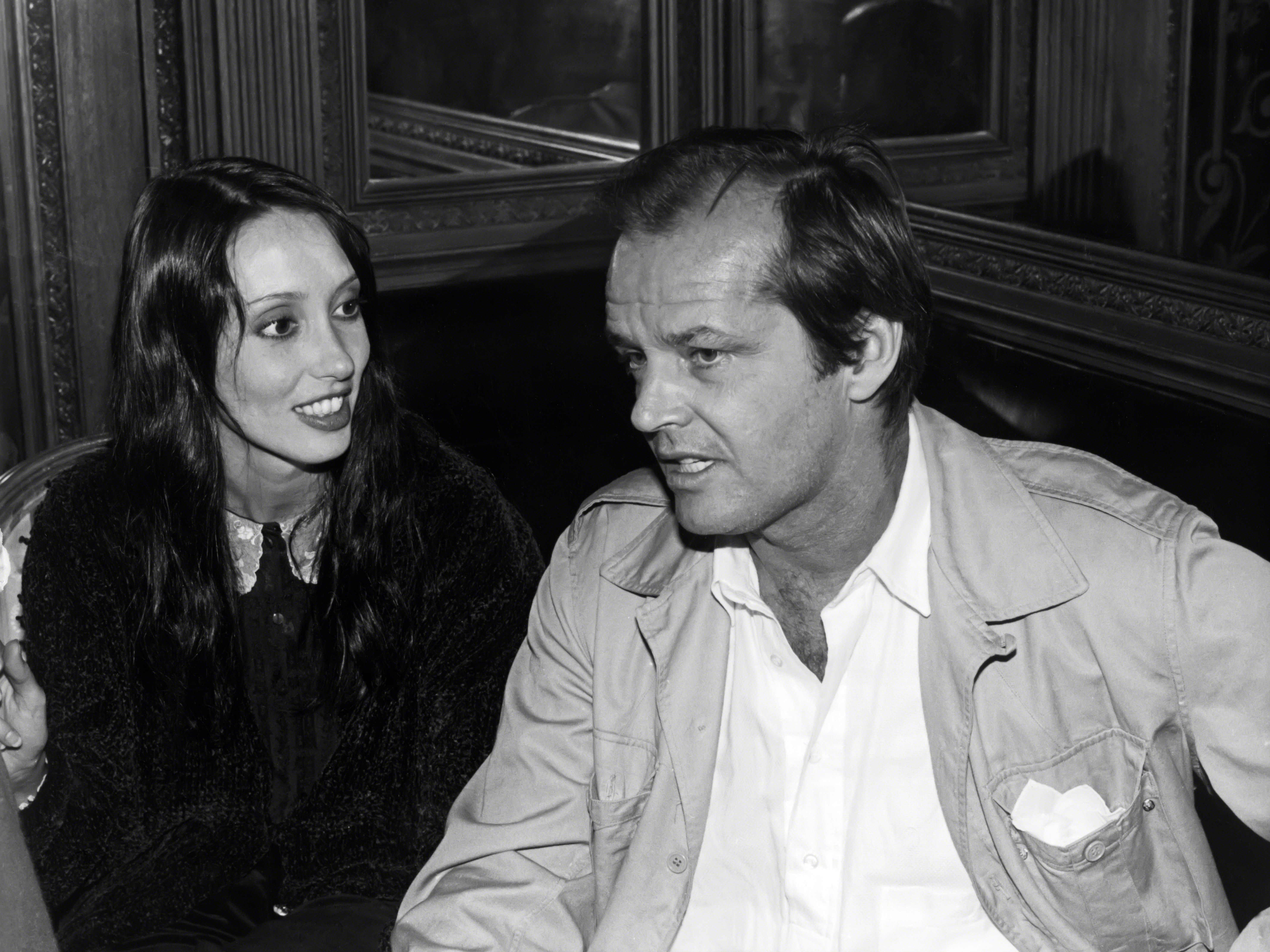
Anjelica Huston, who was dating Jack Nicholson at the time of filming, said of Duvall: ‘When I saw her during those days, she seemed generally a bit tortured, shook up. I don’t think anyone was being particularly careful of her.’
Unused to genuine terror on screen, some critics accused Duvall of overacting, panning her performance. This lead to another dry spell in the actress’ career and an eventual move back to Texas in 1994.
Many speculated that Duvall was never mentally the same after the ordeal of filming The Shining.
In the years that followed, as Duvall was inevitably subjected to the same fate as so many Hollywood actresses who age out of stardom in a way men do not, her mental health began to deteriorate significantly.
Meanwhile, her acting roles grew fewer and farther between.
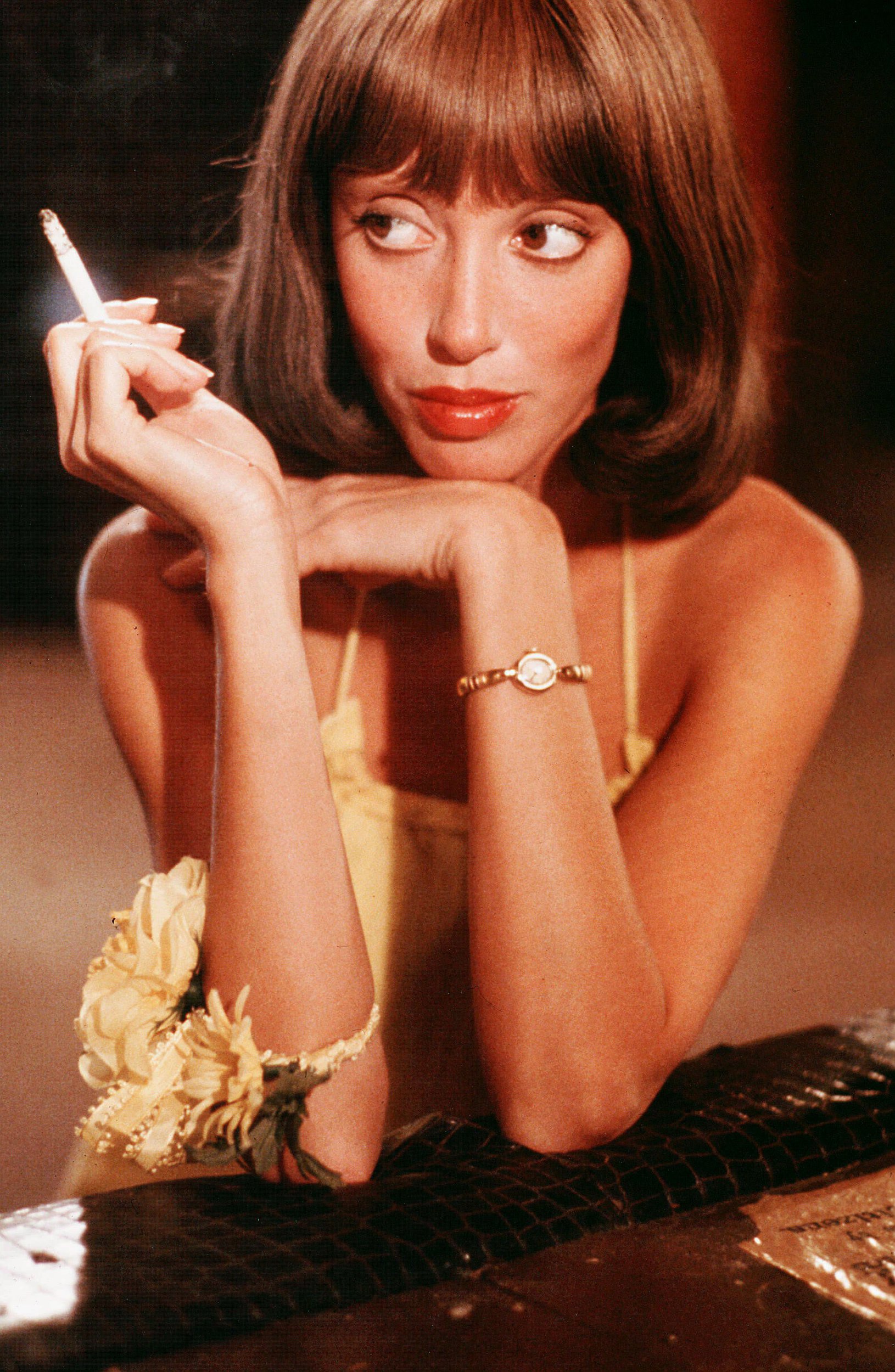
Her partner, Dan Gilroy, who she was with from 1989 until her death, told the New York Times of her decline: ‘Things went downhill when she started becoming afraid of things, maybe didn’t want to work. It’s really hard to pin it on any one thing.’
Duvall began suffering bouts of intense paranoia, often spouting various conspiracy theories.
Gilroy said: ‘She became paranoid and just kind of delusional, thinking she was being attacked. She tried to make calls to the F.B.I., and asked our neighbor to protect us.’
‘It was just shocking that, suddenly, from normal, it went south like that,’ he added.
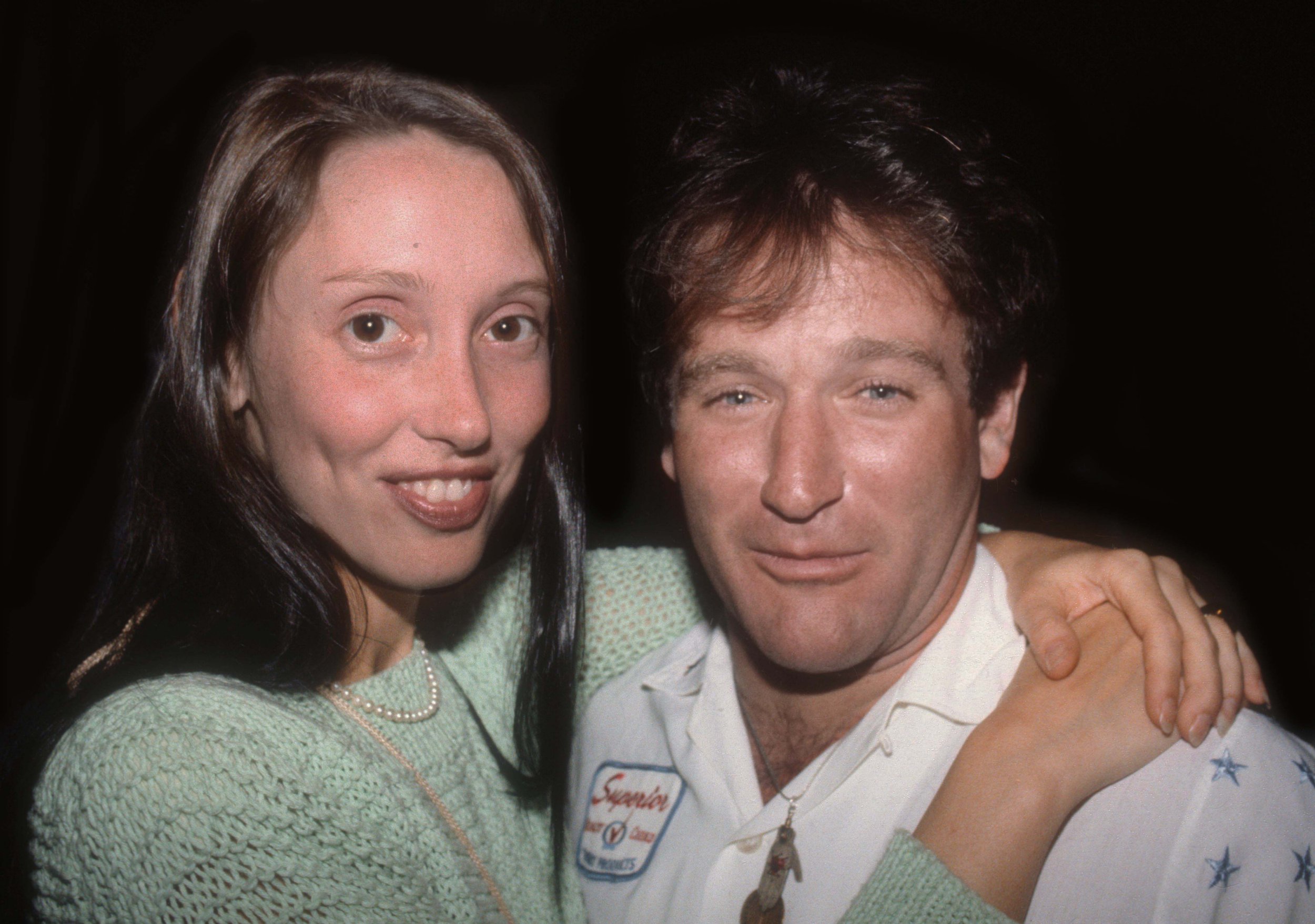
(Picture: Adam Scull/photolink/Shutterstock)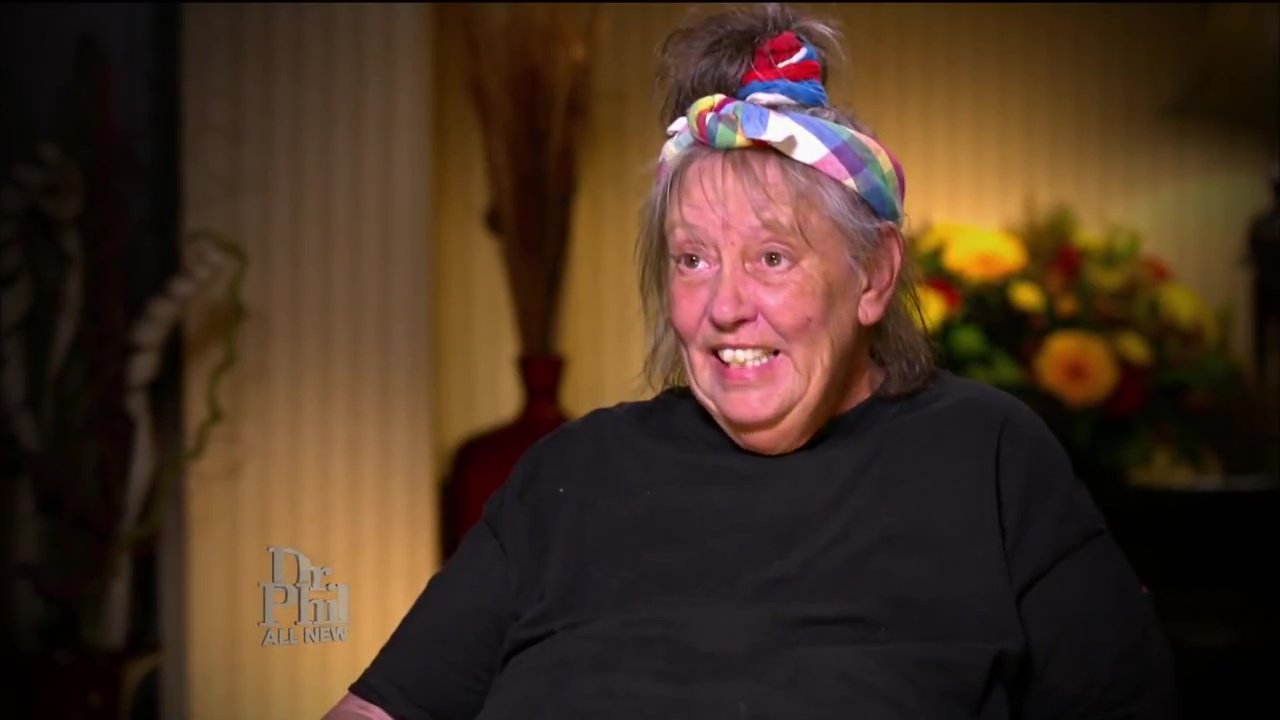
In a deeply controversial decision, The Dr. Phil Show filmed an interview with Duvall in 2016 in which the actress appeared disheveled and often incoherent.
With wide eyes, she told Dr. Phil various paranoid delusions, including her belief that her Popeye co-star Robin Williams, who died by suicide in 2014, was still alive and ‘a shapeshifter.’ At one point in the episode, she also said: ‘I’m very sick, I need help.’
She later told The New York Times of Dr. Phil: ‘I found out the kind of person he is the hard way. My mother didn’t like him, either. A lot of people, like Dan, said, “You shouldn’t have done that, Shelley.”’
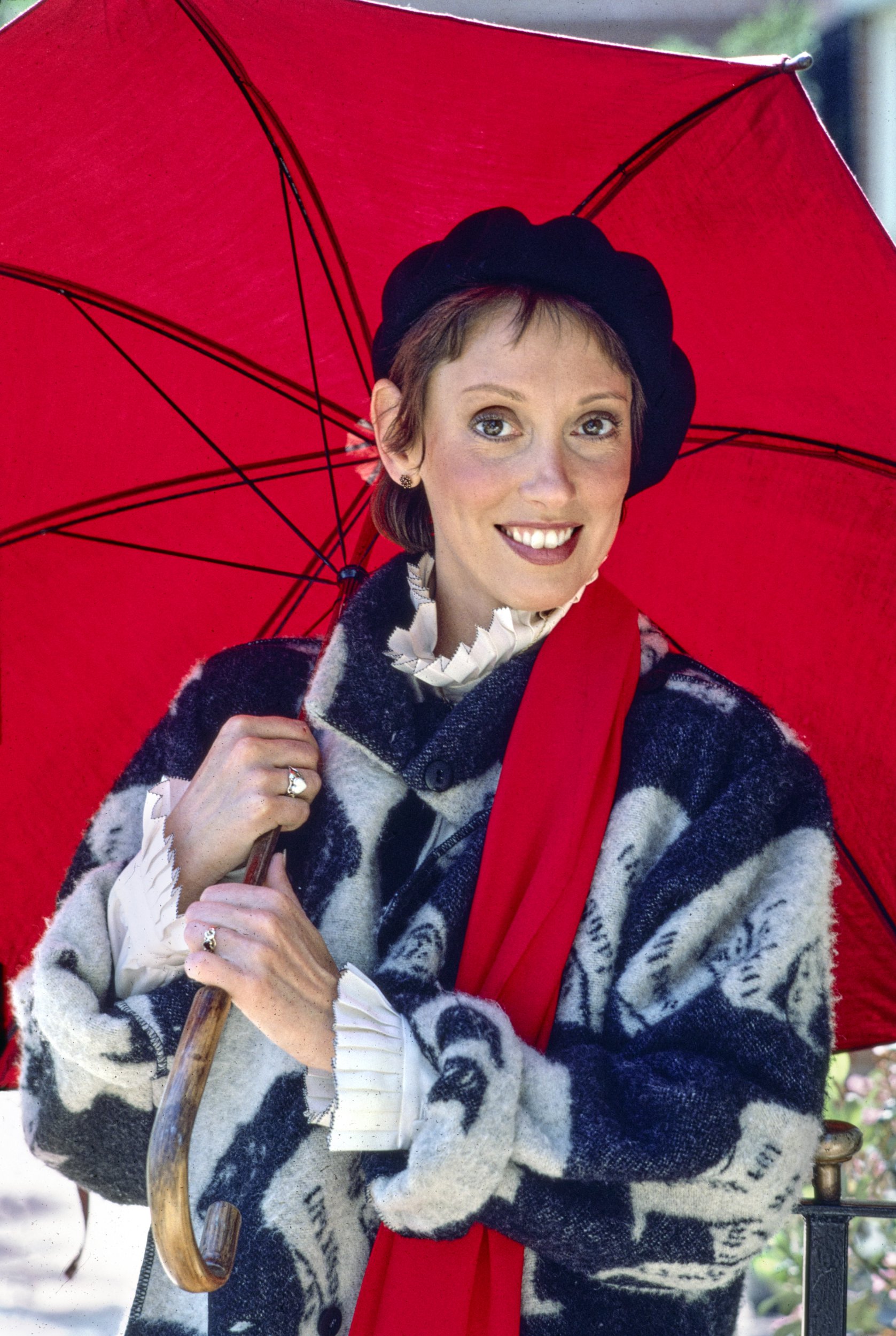
Despite her complicated life, Duvall is remembered for her tremendous creative contributions. Perhaps most notably (and most under-recognised) are her production companies which programmed pioneering, offbeat children’s shows like Faerie Tale Theatre – a cult classic among millennials.
From beginning her life as a young girl in Texas bullied for her striking looks, Duvall became an iconic actress who didn’t just play parts, but defined them.
Gilroy told the The Hollywood Reporter of his partner’s death: ‘My dear, sweet, wonderful life partner and friend left us. Too much suffering lately, now she’s free. Fly away, beautiful Shelley.’




















